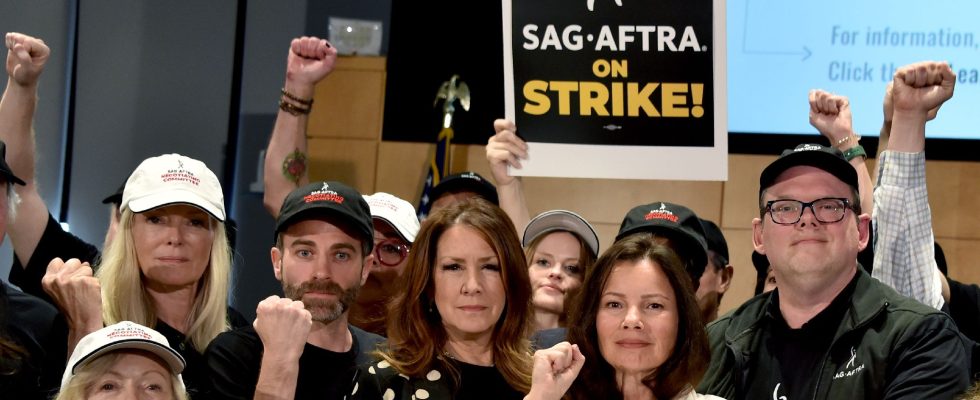Are we heading towards a complete return to work? The screenwriters, whose strike has paralyzed the industry for almost five months, announced on Sunday that they had reached an agreement with the studios in Hollywood.
“We have reached an agreement in principle on a new (minimum basic agreement) 2023, that is to say an agreement in principle on all points of the agreement, subject to the final wording of the contract,” says the letter the Hollywood Screenwriters Union (WGA) sent to its members. “We can say, with great pride, that this agreement is exceptional – with significant gains and protections for screenwriters in all sectors of the members’ activity,” said the WGA.
Strike pickets suspended
The letter, which AFP was able to consult, does not give details of the agreement, but indicates that the details are being worked out and that the final word will rest with the members. “To be clear, no one should return to work until expressly authorized by the Guild. We are still on strike until then. But as of today, we are suspending the picket lines. WGA strike,” the union added.
Thousands of film and television writers put down their pens at the beginning of May to demand better pay, better rewards for creating hit shows and protection from artificial intelligence.
They have been picketing companies like Netflix and Disney for months and, joined by striking actors in mid-July, have paralyzed the entertainment industry.
Actors’ strike will continue
Negotiations remained stalled for weeks until recently, with executives from Netflix, Disney, Universal and Warner Bros. Discovery personally participating in the talks in recent days.
Among their demands, the writers claim that their salaries have not kept up with inflation. They also want to be able to earn much more when one of their films or series is a hit on a streaming platform, instead of receiving a lump sum payment, which is generally quite low, regardless of the popularity of the program.
The two professions also want safeguards against the use of artificial intelligence: actors fear seeing their image or voice cloned, while screenwriters fear that AI could be used for scripts and that they are paid less, or that their scenarios are used to train robots.
A very long strike in 2007-2008
The WGA strike is much longer than that of the screenwriters in 2007-2008, which lasted 100 days and cost the Californian economy $2.1 billion.
In early September, the Financial Times reported a study by the Milken Institute estimating the cost of Hollywood’s current shutdown at $5 billion. Even if the deal with the writers is finalized, the actors’ strike will continue.
Their union, SAG-AFTRA, the actors’ guild, which has 160,000 members, has not spoken to employers since mid-July. But the two unions share many similar demands, and the trade press believes that an agreement with the WGA could help pave the way for a resolution of the actors’ strike.
